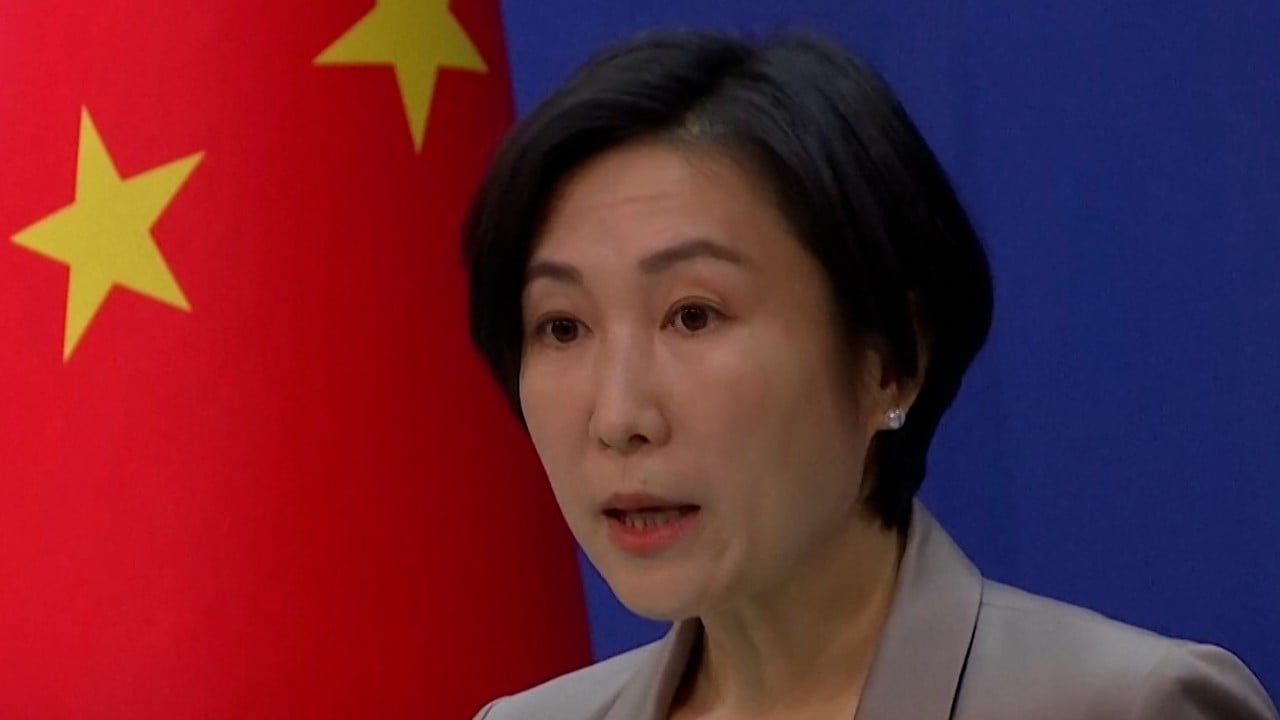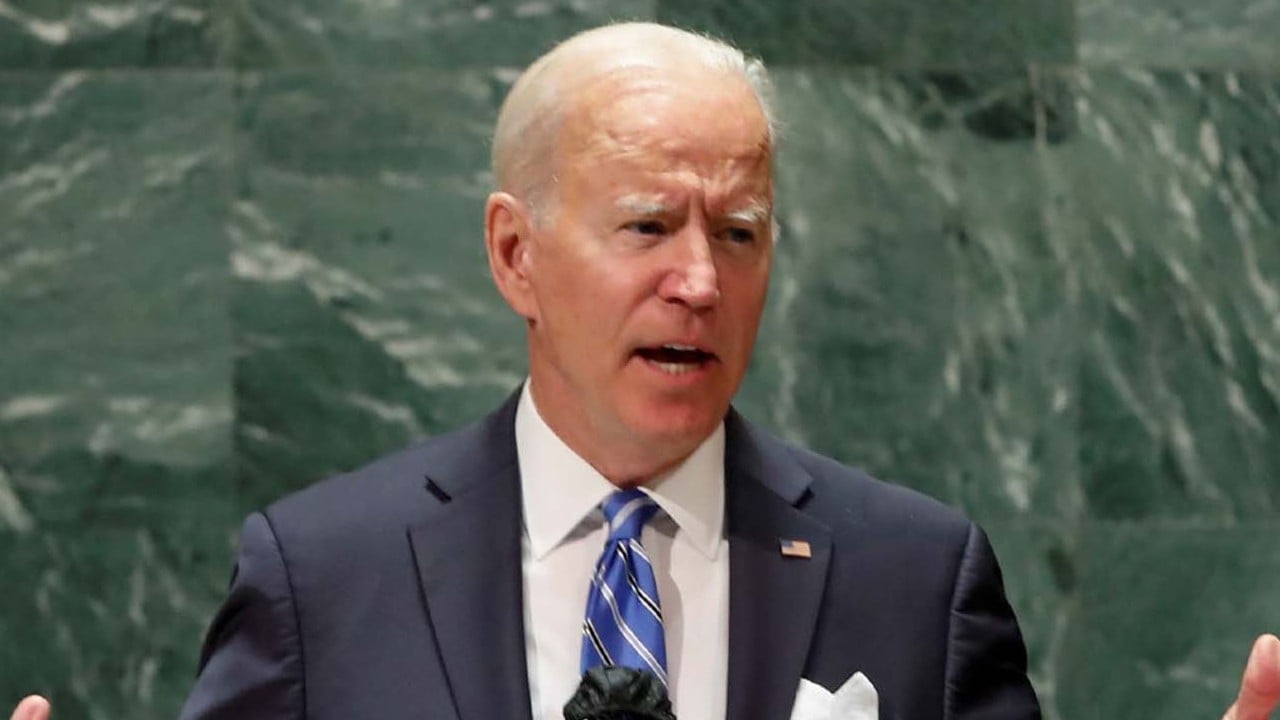
US must alter course in how it deals with China or face inevitable conflict, foreign minister says
- In a speech in New York outlining the development of China-US relations, Wang Yi says Taiwan has become biggest risk in bilateral ties
- Imminent Wang-Blinken talks expected to determine how the two nations will ease tensions and may lay the groundwork for Xi and Biden to meet in person
China-US ties had reached their lowest point since normalisation in 1979, Wang said, despite both Chinese President Xi Jinping and his US counterpart Joe Biden vowing to put relations on the right track.
“The US seems to have two different sets of musical scores. Their leaders’ political will for a stable bilateral relationship has yet to be translated into logical policies,” he said.
“If the US handles Sino-US relations along a zero-sum game mentality and continues to use ‘political correctness’ to mislead its China policy, it will not only fail to solve its own problems, but will also bring Sino-US relations to conflict and confrontation,” he said.
“The US has been making endless provocations on China’s core interests and development rights, but at the same time it is calling for stabilising relations and avoiding confrontation. This is contradictory in logic and reality.”
New US-led Pacific group to meet amid worry over China’s military ‘footprints’
The prospect for China-US ties followed a further downward trend after the talks, with Beijing sanctioning Pelosi and her immediate family members following her trip to Taiwan and halting several defence dialogues and their climate change cooperation.
Beijing sees Pelosi’s trip as a US endorsement of a pro-independence agenda for Taiwan. Beijing sees the island as part of China and has never ruled out the use of force to take control of it. Most countries, including the US, do not recognise Taiwan as an independent state. Washington, however, opposes any attempt to take the island by force.
“The Taiwan question is growing into the biggest risk in China-US relations. Should it be mishandled, it is most likely to devastate bilateral ties,” Wang said.
“Just as the US will not allow Hawaii to be stripped away, China has the right to uphold the unification of the country,” he said.
A US Senate committee took a first step in providing billions of dollars in weapons directly to Taiwan to deter Beijing.
Tensions have also risen over human rights with the US accusing Beijing of genocide against Muslim Uygur people in Xinjiang, which Beijing has denied.
Biden views China as the main rival to the US.
“China does not deny that there is competition between China and the United States in the fields of economy and trade, and is not afraid of competition, but we do not agree to simply using competition to define China-US relations,” he said.
“The US cannot on one hand damage China’s core interest, while on the other hand demand China cooperate unconditionally”.
Wang said China had no intention of replacing the US, saying China had not exported its ideology or colonised any nations in its history. But he said the US could not change China according to “its own likes and dislikes”.
“Neither China nor the US can defeat each other,” he said.
“Since modern times, the Chinese people have been arduously exploring the road of national salvation and revitalisation. Various plans, including those of the Western system, have been introduced one after another, but they have all ended in failure due to unsatisfactory conditions.”
Britain and China agree to keep lines of dialogue open
The coming talks between Wang and Blinken are expected to determine how the two nations will ease the tensions, and may lay the groundwork for Xi and Biden to have their first face-to-face meeting, most likely to be in Bali in November on the sidelines of the G20 summit.



